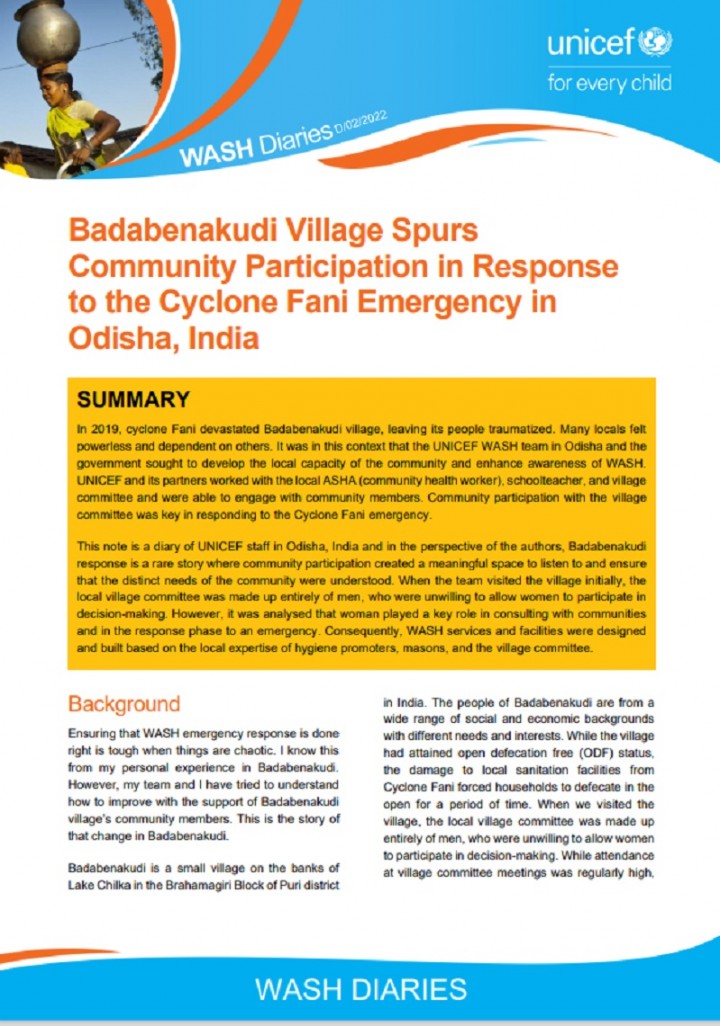Badabenakudi Village Spurs Community Participation in Response to the Cyclone Fani Emergency in Odisha, India
UNICEF (2022)

Published in: 2022
Pages: 6
Publisher:
UNICEF
Author:
UNICEF
Uploaded by:
SuSanA Admin
Partner profile:
common upload
793 Views
0 Downloads
In 2019, cyclone Fani devastated Badabenakudi village, leaving its people traumatized. Many locals felt powerless and dependent on others. It was in this context that the UNICEF WASH team in Odisha and the government sought to develop the local capacity of the community and enhance awareness of WASH. UNICEF and its partners worked with the local ASHA (community health worker), schoolteacher, and village committee and were able to engage with community members. Community participation with the village committee was key in responding to the Cyclone Fani emergency.
This note is a diary of UNICEF staff in Odisha, India and in the perspective of the authors, Badabenakudi response is a rare story where community participation created a meaningful space to listen to and ensure that the distinct needs of the community were understood. When the team visited the village initially, the local village committee was made up entirely of men, who were unwilling to allow women to participate in decision-making. However, it was analysed that woman played a key role in consulting with communities and in the response phase to an emergency. Consequently, WASH services and facilities were designed and built based on the local expertise of hygiene promoters, masons, and the village committee.
Bibliographic information
UNICEF (2022). Badabenakudi Village Spurs Community Participation in Response to the Cyclone Fani Emergency in Odisha, India. UNICEF
Filter tags
Case studies in other formats English Practitioners Rural South Asia














